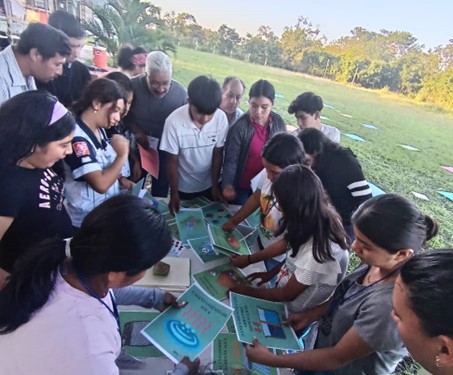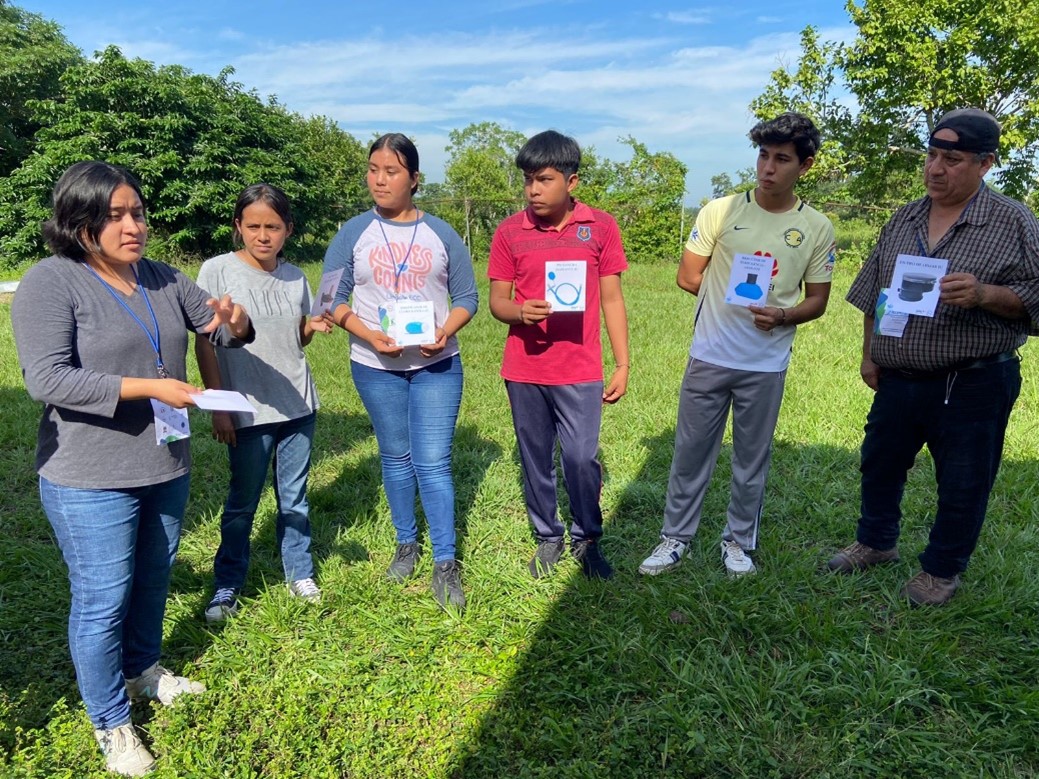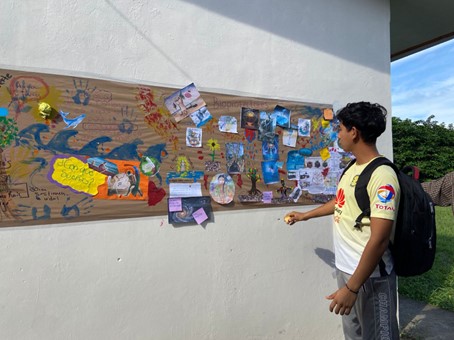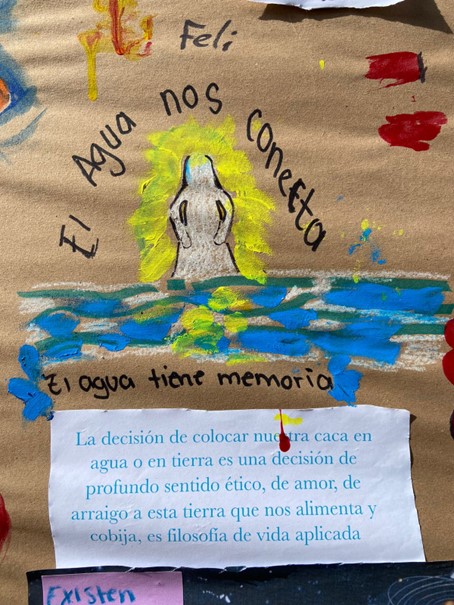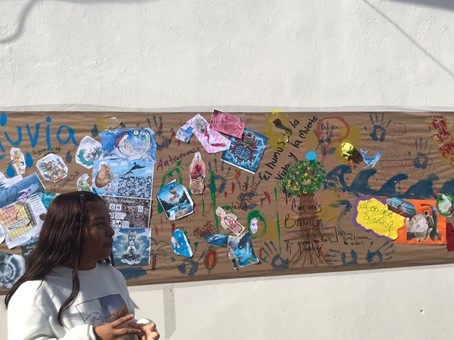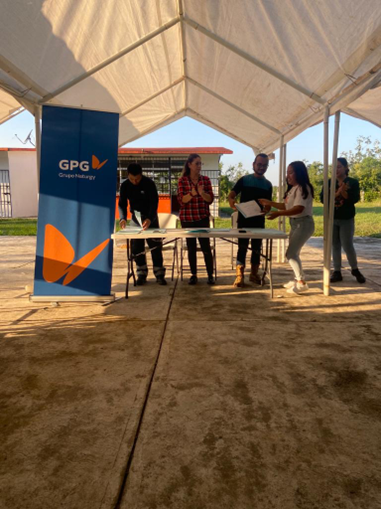Last 8th and 9th December, Module VI of the Xalag Chúchut School took place at the Telebachillerato “Países Bajos” in the Ruta de los Kilómetros (Tuxpan, Veracruz) with the participation of 24 students.
This module marked the end of the school’s activities and was led by GPG Mexico’s Social Management team in Tuxpan, whose mission is to promote water management in the 13 communities surrounding the Tuxpan III and IV combined cycle power plant, through experiential learning and human development.
First activity: Xalag Chúchut School Rally
This first activity of the module was about building on the previous sessions involving organisations such as: Red de Ecotecnologías de México, Grupo Interdisciplinario de Tecnología Rural Apropiada, A.C. (GIRA), Cántaro Azul, Isla Urbana, SARAR Transformación and Arquitectura Cruda; as well as institutions such as: the National Commission of Natural Protected Areas, Universidad Veracruzana, Instituto Tecnológico de Álamo-Temapache and the Centro de Estudios Tecnológicos del Mar #20.
The rally addressed key topics such as eco-technologies, community water management, people’s co-responsibility in water conservation, water harvesting systems as an alternative for access to water and the integration of eco-technologies in the homes of families along the Ruta de los Kilómetros.
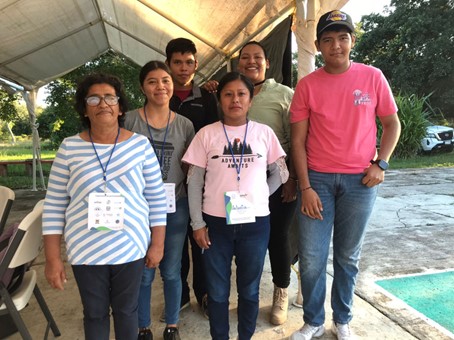
Second activity: The environmental services of wetlands and their relationship with my community
In the second session, Mauricio Hernández Sánchez from the Institute of Ecology in Veracruz spoke on the topic “The environmental services of wetlands and their relationship with my community”. During this session, participants identified the different threats that wetlands face in their communities, such as livestock farming, unregulated fishing, improper water use and pollution from fertilisers. They also proposed specific measures to preserve these ecosystems, including the promotion of environmental education, the establishment of nurseries for the production of seedlings and the restoration of mangroves, the protection of species, the observance of closed seasons for fishing and the ban of deforestation of vegetation.
In addition, participants discussed water-related issues in their communities, emphasising water scarcity, leading to limited availability and the need to address water hygiene. Faced with these difficulties, the participants presented proposals for eco-technologies, including water harvesting systems and dry toilets, as viable alternatives to fulfil the needs expressed at Xalag Chúchut School.
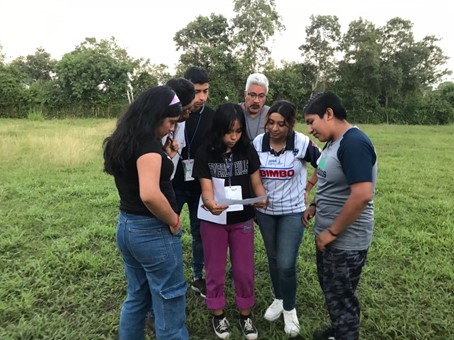
“The community of Países Bajos, km 8, is experiencing a noticeable water shortage which is evident in the inadequate supply from the wells compared to previous years. This situation can be attributed to various factors such as climate change, excessive use of water resources, and lack of awareness regarding its actual use. Often, we fail to recognize the essential role of water in sustaining life, treating it more like an object rather than a vital element necessary for our existence,” stated Allison Mendoza Blanco, Moisés Gregorio Gregorio, and Saulo Gregorio Cruz.
“The issue of beaches contaminated with plastic is a problem. It is crucial for everyone to take responsibility in preserving clean water by promoting sustainable habits. We should collectively commit to preventing water pollution by adopting practices that minimise waste generation. By doing this, we contribute to guaranteeing that future generations, including our children, will have the opportunity to enjoy clean and healthy beaches”, said Antonia García Santiago.
The completion of Module VI at Xalag Chúchut School marks a significant milestone in promoting sustainable practices and effective water management. This achievement contributes to the sustainable development of the Ruta de los Kilómetros community.
The awards ceremony was attended by representatives such as Carlos Villegas Aguirre from GPG Naturgy, the teacher coordinator of Telebachillerato de Países Bajos, Anel Herbert, and the teacher Mauricio Hernández Sánchez. With the presence of all the students, the Xalag Chuchút Water School was officially concluded. The completion of the first water school in the Ruta de los Kilometros region involved 96 hours of in-person training and awareness-raising, along with the completion of six educational modules on water conservation, water harvesting, and sanitation.
It is important to assess the feasibility of implementing eco-technologies related to water conservation and harvesting, such as filtration and rainwater catchment systems, in schools or communities. Additionally, there is a need to consider the possibility of continuing environmental education initiatives involving various stakeholders. Some participants expressed their interest in implementing systems and taking actions for environmental conservation, particularly in estuaries, mangroves, and tulares.
